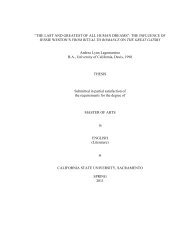COMMUNITY ACTIVISM IN OAK PARK: COMPETING AGENDAS ...
COMMUNITY ACTIVISM IN OAK PARK: COMPETING AGENDAS ...
COMMUNITY ACTIVISM IN OAK PARK: COMPETING AGENDAS ...
Create successful ePaper yourself
Turn your PDF publications into a flip-book with our unique Google optimized e-Paper software.
in city environments is exposed in the form of social constructs, such as community<br />
(Krauss 1989), class (Freidenberg 1998), race (Williams 1992), and gender (Spain 1992).<br />
Elijah Anderson (2002:1537) further elaborates on urban ethnography and states,<br />
Of particular interest is how residents meet the exigencies of life,<br />
how they group themselves socially, and how they arrive at their<br />
shared understandings of the local system of rules of everyday<br />
life—the codes they live by. Direct observation of key events and<br />
people’s reactions to them can alert the ethnographer to the subtle<br />
expectations and norms of the subjects—and thus, to their culture.<br />
Collecting large scale qualitative data in urban contexts once seemed almost impossible<br />
to do, but anthropologists have successfully negotiated cultural and institutional barriers<br />
and produced detailed ethnographic descriptions (Susser 1982b:7).<br />
“The practice of intensive fieldwork has been central to the definition of modern<br />
social anthropology as a discipline—to the extent of being the single distinctive feature of<br />
the anthropological method” (Jenkins 1994:433). Anthropologists’ knowledge is gained<br />
by close and repeated interaction with specific individuals, who provide information<br />
about different cultures and different ways of being. “The main technique for<br />
constructing knowledge about a putative ‘other’ is participant observation, blending<br />
oneself within the lives of others by sharing time with them in their own space”<br />
(Freidenberg 1998:170). “In participant-observation studies, the observer occupies a role<br />
in a social context, which is the subject of study” (Bositis 1988:334).<br />
Much urban ethnographic research has been conducted in lower-income<br />
neighborhoods (Marks 1991:461-462), where inequalities are exposed at the level of the<br />
“community” and reveal how residents perceive their community environment. The term<br />
community implies something “geographic and psychologic” and “geographically it<br />
15



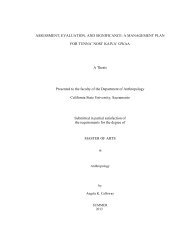
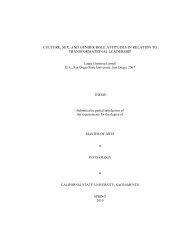
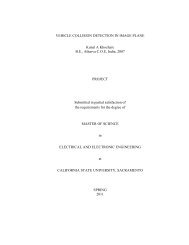
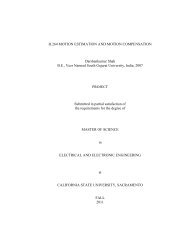
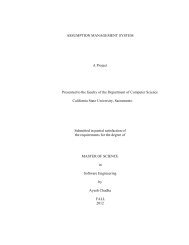
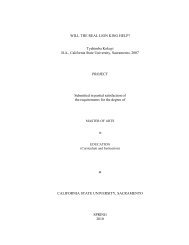
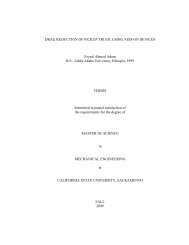
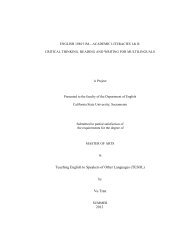
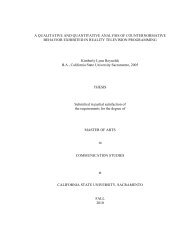
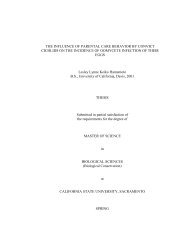
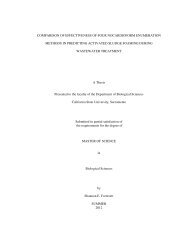
![Completed Thesis to Grad Studies[Final3].pdf](https://img.yumpu.com/17538645/1/190x245/completed-thesis-to-grad-studiesfinal3pdf.jpg?quality=85)
